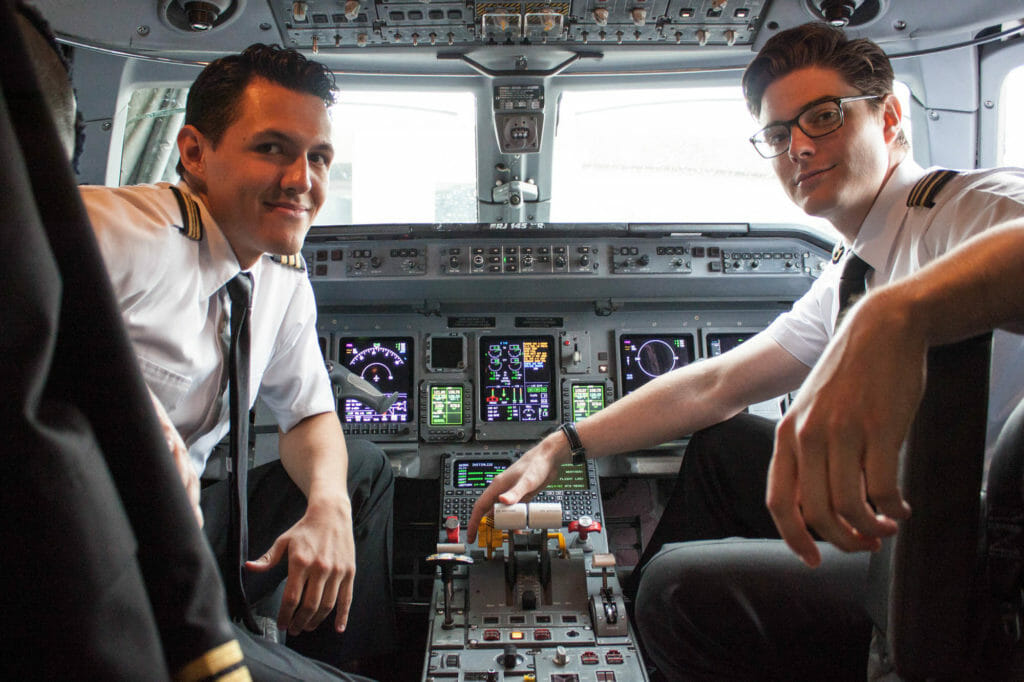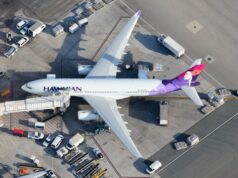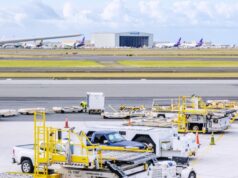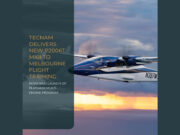
When we talk about success, what are we really talking about? What are the terms by which we define success, and how does it change from industry to industry, person to person? As with most things, there is no one true answer and the more people you speak with, the greater the variety of answers you’ll get. I’m sure there are entire articles or papers in which the sole focus is the concept of success and its effects on the individual’s quality of life, but for the sake of this column and its audience, I’ll narrow it down to one person and his remarkable career advancement within the airline industry.
While still young, and perhaps still defining what success means to him and contemplating how it may evolve throughout his life and career, my former student and current colleague, Marc Cervantes, has had quite a run of it so far. At 24 years of age, Marc is a first officer at a legacy carrier with an MBA and founder of a non-profit under his belt. While clearly Marc has achieved a great deal for his age, what is important to understand is that a part of what defines Marc’s success is more than just his job and title, but his personal and professional development.
Marc, like most of us, has been an aviation enthusiast for as long as he can remember. Growing up in the U.S. but with French parents, Marc was fortunate to travel often and therefore fly quite a bit. His first real memory of flying was on a trip to visit family in France and with the encouragement of his father, he took the opportunity to say hi to the pilots and look around the flight deck. It was from that point that Marc knew what he wanted and as soon as he turned 16, he took it upon himself to begin working on his private pilot’s license. Before graduating high school, Marc was a licensed pilot and on his way to attend Embry-Riddle Aeronautical University. This is where our paths crossed. Marc was the first student to whom I was assigned as a brand-new flight instructor. Marc made easy work of his instrument rating and was on to the next license and a new instructor in no time at all. From the Flight Line Assimilation Program to Tutor Lab assistance, Marc was as focused on his grades and ratings as he was on participating in extracurricular activities. This was at times a very daunting task, especially for such a young person living in Florida and surrounded with so many other distractions. Nonetheless, persistence and discipline afforded Marc the opportunity to become a Flight Instructor while still completing his undergraduate studies and further developing both his airmanship and professional skills.
As a student, Marc accepted an intern position with ExpressJet Airlines in Atlanta, Ga. He spent his summer working in the offices of the Operations Department and took the opportunity to connect and network while working on developing additional workplace skills. His relationship with the airline and its employees would later prove to be of considerable value in Marc’s career progression.
Marc would eventually gradate and become a full-time instructor but simply instructing full time was not enough. Marc enrolled in Embry-Riddle’s MBA program while still an instructor. In 2014, the airline industry was in full-swing toward profitability and the need for airline pilots was ever increasing. For many in Marc’s position, this meant they no longer needed to spend years as an instructor. Though still only 20 years of age, Marc accepted a position at ExpressJet Airlines. His time spent as an intern working diligently and professionally left positive impressions on those whom he’s met and served to create the special terms for his job offer. After completing his training, Marc was still not of legal age and therefore needed to wait a period of almost two months before completing his ATP license.
As a First Officer for ExpressJet Airlines, Marc wasted no time focusing on further developing his skill sets. He volunteered for positions within the Union and Gateway Programs and soon found himself Chairman of the Furlough/Leave committee and Vice-Chairman of the P2P committee. Additionally, Marc volunteered with the Big Brothers Big Sisters organization and became a Big for Dante, a now close family friend. These measures and steps were all but pieces of a much bigger picture that show his efforts to not only involve himself in company and industry matters, but to learn from those around him. Clearly, there were times that were more difficult than others, and mistakes were made along the way. The thing that stands out most with Marc is that while the circumstances for him seemed favorable due to the shifting tides in the industry, that he was clearly becoming involved and therefore building a particularly nice résumé, Marc was honing the skills that made him a more well-rounded and conscientious individual. These are some of the key professional developments that allowed Marc to further propel his career at such a young age.
I remember well the night Marc called to talk about an idea for creating a mentorship organization focused on supporting aspiring pilots. It had been quite a few years since we had first met and while still the fun basketball-loving guy I met as a teen, there was something different in his approach, his language and thought processes. His idea was solid and we agreed there was an unfulfilled need in our industry. Almost two years later, and through more ups and downs then we could have possibly predicted, Professional Pilots of Tomorrow is in a healthy position to continue supporting an ever-growing number of members.
Early, on his 23rd birthday, Marc got the call from Delta Air Lines. Soon he was flying the MD-88 out of Atlanta, the city where he first interned years before. A driving force behind his involvement in organizations and good grades was Marc’s desire to become a pilot for Delta. His career is looking bright and while his success has been fast and furious, there is great deal more to consider beneath the title.
Character, discipline, and motivation are just some of the key contributors toward a successful career. Regardless of whether a person becomes a legacy pilot at 23, 30, or any age, what matters is the he/she grows personally along the path and enjoys the process to their best ability. We are more than just pilots, and the process of working toward our goals is worth evaluating and recognizing as part of what makes us successful individuals. Recognizing that, in the end, it’s not just about the destination, but the journey that counts. Work on not just landing the job you’ve always dreamed of, but of becoming a better person in the process. ACN












































































































































